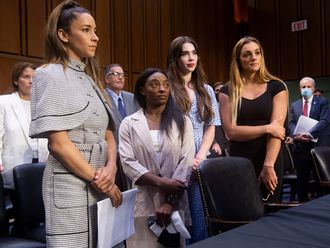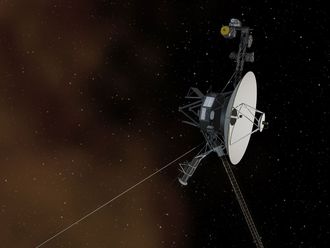Washington: The investigative firm behind the Steele dossier, the controversial memo that alleged extensive collusion between Donald Trump’s campaign officials and Russia, has claimed that the FBI received “credible allegations” about a Kremlin conspiracy throughout the 2016 US election campaign, including from inside the Trump camp.
An op-ed in the New York Times written by Glenn Simpson and Peter Fritsch, the former journalists and founders of investigative firm Fusion GPS, said congressional intelligence committees, who are conducting their own investigations into the Trump campaign, have been aware of the allegations for months.
“We don’t believe the Steele dossier was the trigger for the FBI’s investigation into Russian meddling,” they wrote. “As we told the Senate judiciary committee in August, our sources said the dossier was taken so seriously because it corroborated reports the bureau had received from other sources, including one inside the Trump camp.”
The op-ed also called on lawmakers to examine financial institutions that were funding the US president’s businesses.
The article represents the first time that Simpson and Fritsch have offered a detailed public account of their firm’s involvement in the Russia investigation. In it, they allege that Republican lawmakers are waging a “cynical campaign” to portray Fusion GPS and the now infamous Steele dossier as “unwitting victims of Kremlin disinformation”.
The Steele dossier first came into public view one year ago, when it was published by BuzzFeed. The memos written by a former British intelligence agent and Russia expert, Christopher Steele, made a series of allegations, including multiple secret meetings between Trump campaign officials and Russian agents.
Trump has decried all the allegations as false, and has adamantly denied there was any collusion between his campaign and Russia.
Four individuals, including three former campaign officials, have so far been indicted as part of an ongoing criminal federal investigation into whether or not Trump officials conspired with the Kremlin, including Michael Flynn, Trump’s former national security adviser, who has pleaded guilty to lying to the FBI. Flynn is now cooperating with the investigation.
For months, it was suspected that the Steele dossier, which was shared with US intelligence agencies after the 2016 election, may have prompted the FBI’s decision to open an investigation into the matter.
But subsequent reporting, including by the Guardian and the New York Times, has shown that US intelligence agencies were prompted to investigate the issues before they received the dossier. The Guardian reported in April that foreign intelligence services, including Britain’s GCHQ, were among the first to alert US counterparts to contacts between Trump’s campaign and Kremlin operatives.
The New York Times reported last week that Australian officials passed information about a Trump foreign policy adviser, George Papadopoulos, to US counterparts after he bragged that Russia had compromising information about Hillary Clinton, the Democratic presidential candidate.
Even as new facts emerge and key officials have been indicted, including Paul Manafort, Trump’s former campaign chairman, the focus of some congressional committees has been fixed on Simpson, the former investigative reporter for the Wall Street Journal and co-founder of Fusion GPS.
In his op-ed, Simpson compared Republican attacks against him, which have been led in the Senate by Iowa Republican Chuck Grassley, to efforts by Republicans to protect Richard Nixon during the Watergate era. Simpson has testified before three congressional committees — albeit behind closed doors — and has explained how his clients, the Washington Free Beacon and the Clinton campaign, came to hire Fusion GPS, setting off the private investigation into the Trump campaign.
Instead of focusing on the Russia claims, Simpson said, key Republicans have instead made him the focus of their investigations.
He wrote: “We walked investigators through our year-long effort to decipher Mr Trump’s complex business past, of which the Steele dossier is but one chapter. And we handed over our relevant bank records — while drawing the line at a fishing expedition for the records of companies we work for that have nothing to do with the Trump case.”
Republicans have so far declined to release any of the transcripts of Simpson’s interviews. Simpson said his testimony included allegations of widespread evidence that Trump and his organisation had worked with a wide array of “dubious Russians” in arrangements that raised questions about money laundering.
Simpson also denied knowledge of a 9 June 2016 meeting that took place between Trump campaign officials, including Trump’s son, Donald Trump Jr, and some Russian officials. The meeting is now under scrutiny of Robert Mueller, the special counsel leading the investigation.
Simpson has been accused of having a hand in the meeting because of past and allegedly unrelated work that his firm did in connection to some of the Russians who attended the meeting.
Simpson added: “We’re extremely proud of our work to highlight Mr Trump’s Russia ties. To have done so is our right under the first amendment.”












